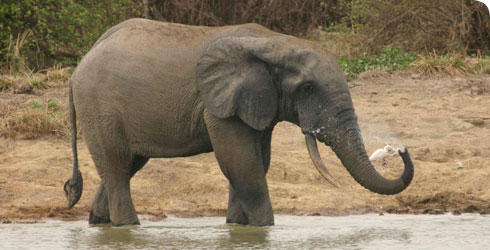Loxodonta africana (African elephant)
Loxodonta africana, the African elephant, is currently found in Africa, south of the Sahara, occuring in about 35 African states.
Elephants are faced with a dual threat to their survival
- destruction of their habitat
- hunting
The former is common to many other species, the latter is due to the elephant’s possession of a precious commodity - ivory.
There is currently a massive surge in ivory trading. More than 14,000 products made from the tusks and other body parts of elephants were seized in 2009. It is estimated that between 8% and 10% of Africa’s elephants are now being killed each year to meet the demand, mostly from the Far East. With the current world population of African elephant at around 300,000-400,000, this represents an annual take of up to 40,000 animals and is clearly not sustainable.
Species detail
-

Physical characteristics
Get an overview of the African elephant's appearance and features.
-
Evolution and systematics
Trace the history of the elephant back more than 70 million years and read about the evolution of the species and sub-species within the genus Loxodonta.
-

Distribution and habitat
Discover the areas within Africa where Loxodonta africana can be found and the types of habitat it typically occupies. Read about the debate over elephants' role in changing their own environment.
-

Biology
Find out about the reproductive biology of the African elephant, including birthrates, mating patterns and the process of giving birth.
-

Behaviour
Get detailed information regarding the behaviour of elephants.
-

Feeding ecology and diet
Read about the feeding patterns of elephants, including the types of food they consume, how much and how they consume it.
-

Threats and conservation
Discover the main threats to the ongoing survival of the African elephant and what action has been put in place or is required to overcome these. Find out how elephants are causing conflict with humans in some areas.
-

References
Get reference material for Loxodonta africana.
Distribution
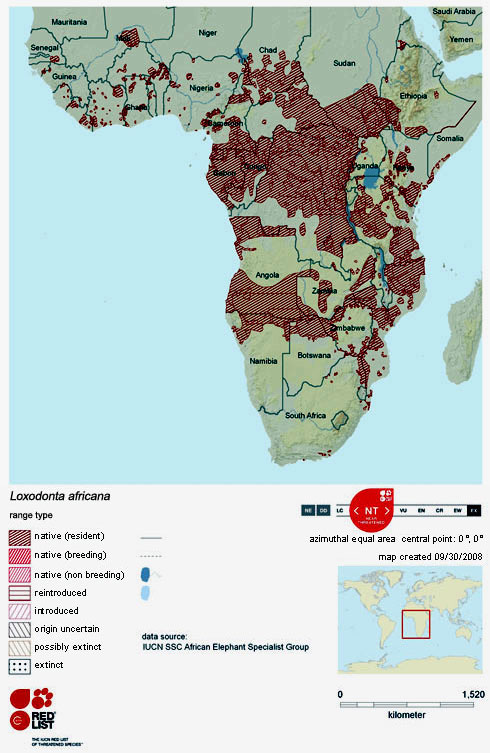
Map showing the distribution of Loxodonta africana in Africa.
Images
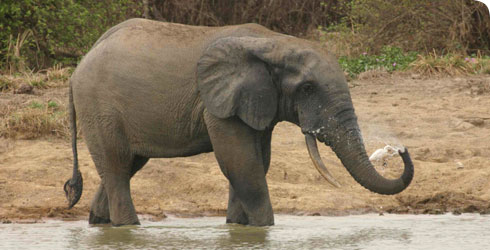
Loxodonta africana
© A Lister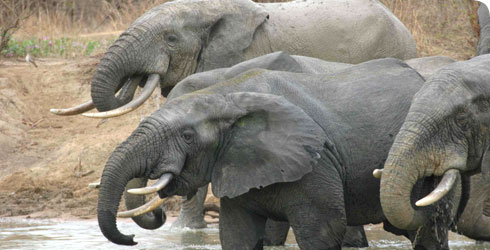
Loxodonta africana
© A Lister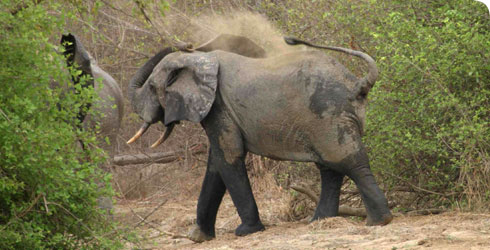
Loxodonta africana
© A Lister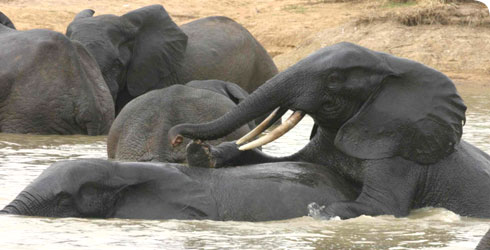
Loxodonta africana
© A Lister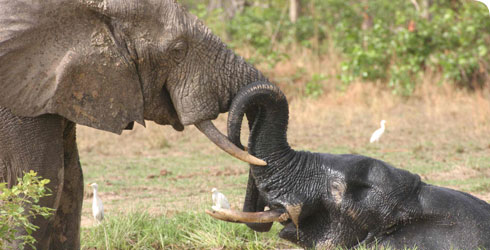
Loxodonta africana
© A Lister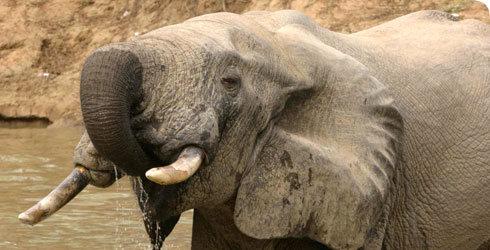
Loxodonta africana
© A ListerAuthor
Professor Adrian Lister
Department of Palaeontology
